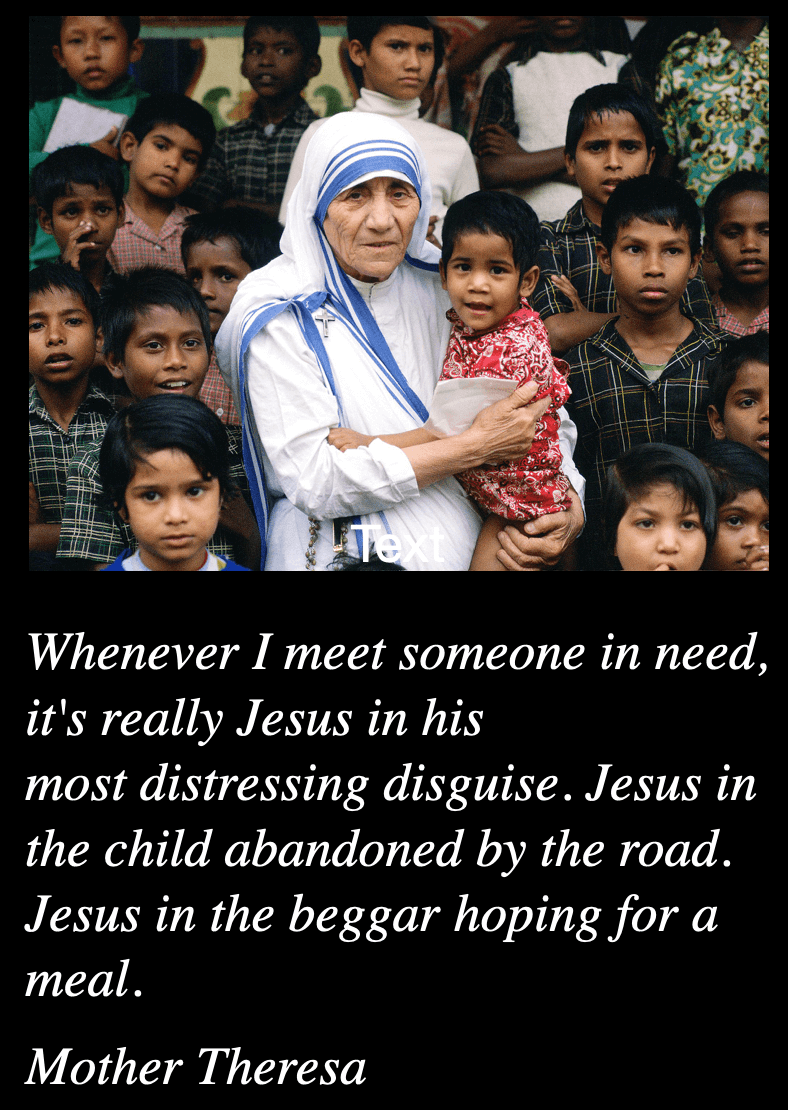“Whenever I meet someone in need,” she said, “it’s really Jesus in his most distressing disguise.” Jesus in the child abandoned by the road. Jesus in the beggar hoping for a meal.
Mother Teresa, born Anjezë Gonxhe Bojaxhiu, was a global symbol of compassion and service to the needy. She dedicated her life to helping the impoverished and sick, particularly in Kolkata, India. Founding the Missionaries of Charity in 1950, Mother Teresa and her nuns provided care for the destitute and dying in slums, offering a beacon of hope to those often forgotten by society. Her work, which earned her a Nobel Peace Prize in 1979, extended to aiding those afflicted with leprosy, establishing hospices, and running orphanages and schools. Her life was a testament to her unwavering commitment to serving the poorest of the poor.
Mother Teresa’s message, that in serving the needy we encounter a spiritual and moral imperative, transcends religious and cultural boundaries. Her belief that the impoverished and suffering are “Jesus in his most distressing disguise” is a profound reminder that acts of kindness and compassion are not merely charitable deeds, but are deeply connected to recognizing the inherent dignity in every individual. This viewpoint invites a reevaluation of our approach to service and charity, urging a deeper empathy and understanding in our interactions with those in need.
From Mother Teresa’s message, we can learn the importance of empathy and the transformative power of selfless service. Her perspective encourages us to view acts of kindness not just as helping others, but as opportunities to connect with a deeper sense of humanity and spirituality. It’s a call to recognize the value and dignity in every person, regardless of their circumstances, and to respond with compassion. This lesson is universal, urging us to look beyond our prejudices and societal labels, and to act with genuine concern and love for those who are most vulnerable.
